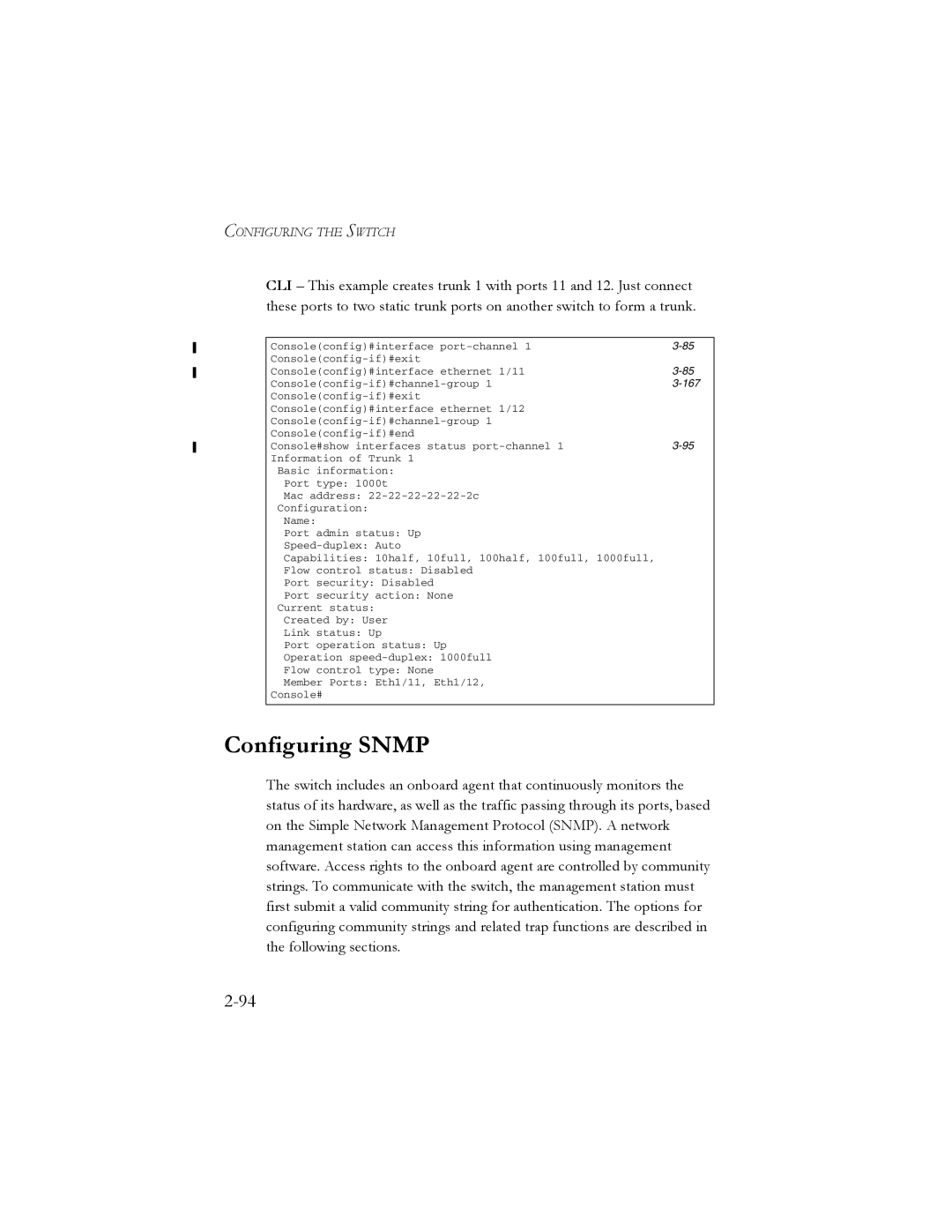
CONFIGURING THE SWITCH
CLI – This example creates trunk 1 with ports 11 and 12. Just connect these ports to two static trunk ports on another switch to form a trunk.
Console(config)#interface | |
Console(config)#interface ethernet 1/11 | |
| |
| |
Console(config)#interface ethernet 1/12 |
|
| |
Console#show interfaces status |
Information of Trunk 1 Basic information:
Port type: 1000t
Mac address:
Name:
Port admin status: Up
Capabilities: 10half, 10full, 100half, 100full, 1000full,
Flow control status: Disabled
Port security: Disabled
Port security action: None Current status:
Created by: User
Link status: Up
Port operation status: Up
Operation
Flow control type: None
Member Ports: Eth1/11, Eth1/12, Console#
Configuring SNMP
The switch includes an onboard agent that continuously monitors the status of its hardware, as well as the traffic passing through its ports, based on the Simple Network Management Protocol (SNMP). A network management station can access this information using management software. Access rights to the onboard agent are controlled by community strings. To communicate with the switch, the management station must first submit a valid community string for authentication. The options for configuring community strings and related trap functions are described in the following sections.
